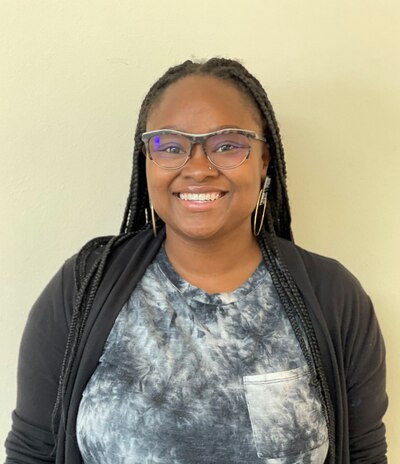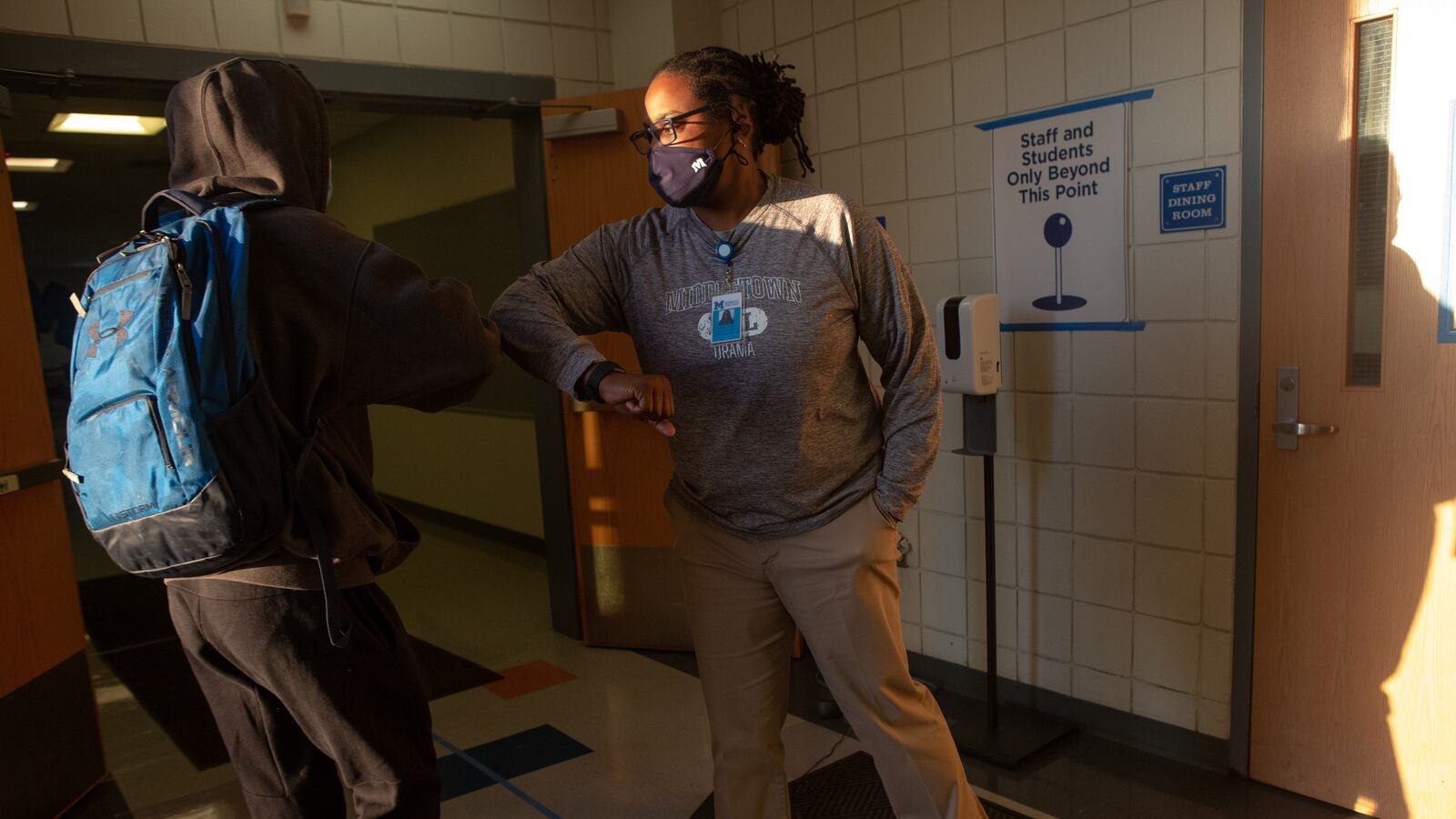Students are back in their classrooms, but those classrooms aren’t the same ones they left in March 2020. There are physical reminders that their schools are different – masks, social distancing, health screenings. And then there’s the invisible weight that each of us carries from a year and a half of stress.
I’ve seen students feeling lethargic, overwhelmed, and still very cautious to be back. When the school doors reopened, students opened up too. Some of their stories were more difficult than others. This fall, my work has been focused on addressing students’ increased needs and helping them cope as best as possible.
As a counselor and coach with the nonprofit Communities In Schools, I helped students navigate remote learning, and I will continue supporting them now. But the trauma that students have endured concerns me, especially as I know firsthand how the feeling of being disconnected can lead young people off track.

My story growing up was like the stories of too many young people in Chicago. Both of my parents were locked up when I was a little kid, and I spent years in foster care. Theirs was a low-income home near Chicago and Kedzie avenues, but my foster grandmother did her best to help me succeed. She enrolled me in religious schools, thinking the discipline and structured learning environment would help me focus and excel. But inside, I was hurting. I was angry my parents hadn’t been there for me. And when they were finally released from jail, I was confused about where they fit in my life.
As a defense mechanism, I goofed off in class and got into fights with other students over petty things. I had the smarts to make straight As, but my report cards were crammed with Cs and Ds. In the middle of seventh grade, I left foster care, moved in with my dad, and transferred to another school.
I still remember how nervous I felt on my first day at Ella Flagg Young Elementary. I’d never attended a Chicago public school. Would I fit in? Would I have the same discipline problems? I remember telling myself, don’t mess this up. But truth be told, I didn’t know how to do that.
In hindsight, that seventh grade year was a fork in the road. I had to choose how I wanted my life to be.
Thankfully, with the help of a few caring adults, my life took a U-turn. My father dedicated himself to helping me get ahead, and my homeroom teacher, Ms. Jones, also took me under her wing. After long days in the classroom, she’d stay after school to help me catch up in math and reading. With her guidance, I made new friends and began to thrive. I was accepted to Prosser Career Academy for high school and graduated four years later as valedictorian. I was college-bound.
During my sophomore year at the University of Wisconsin-Madison, I took a social work course and found my calling: I wanted to help children struggling as I had struggled.
Today, many of the students I work with carry burdens no young person should bear, including food insecurity, homelessness, and the violent deaths of friends and family members. Now, our city’s young people also have to deal with new stressors brought on by the pandemic.
Our students need their communities — caring adults inside and outside the school building — to come together for them, using the example of Ms. Jones as our guide. They need to feel seen and heard.
Supporting students this year is a very vulnerable space for me. I realize that although they may be looking to me as the expert and the one with the right answers, they are experts too. They are surviving a pandemic just like me.
So I work with them to determine the best way forward. I empower them to advocate for themselves, and I believe they can conquer anything that stands in their way.
My mantra for students this year is “you owe yourself consistency and effort,” and I also owe my students that. Caring adults show up for students by building positive, developmental relationships, being inquisitive, and championing young people’s resilience.
It is a privilege to be able to contribute to the growth of future generations. We must be intentional about helping them feel supported, cared for, and capable.
Diamond Howard is a Licensed Clinical Social Worker currently serving as a student supports manager for Communities In Schools of Chicago. She is a first-generation college student and a Posse Scholar. She received her bachelor’s degree in Spanish and social work and her master’s degree from the University of Wisconsin-Madison.


